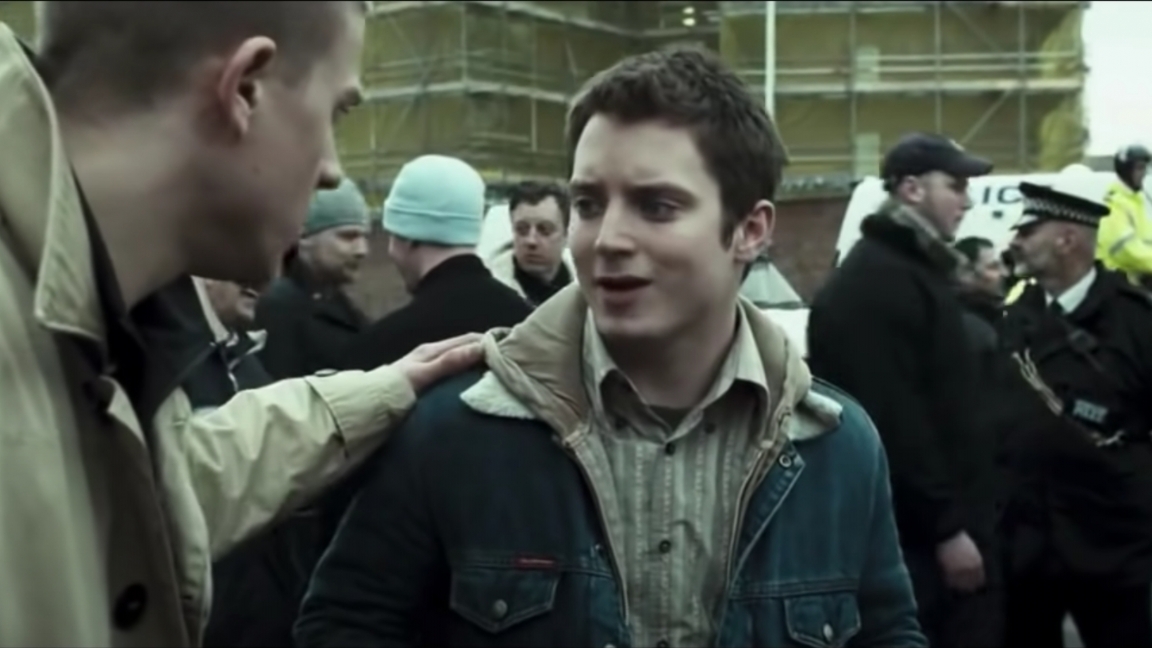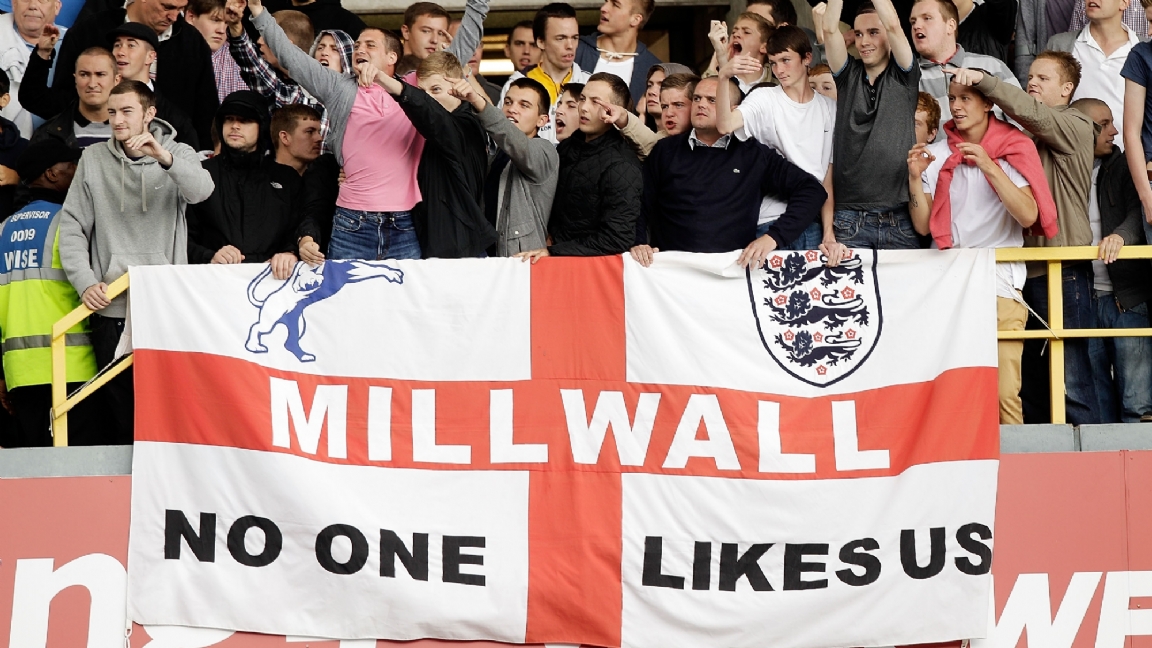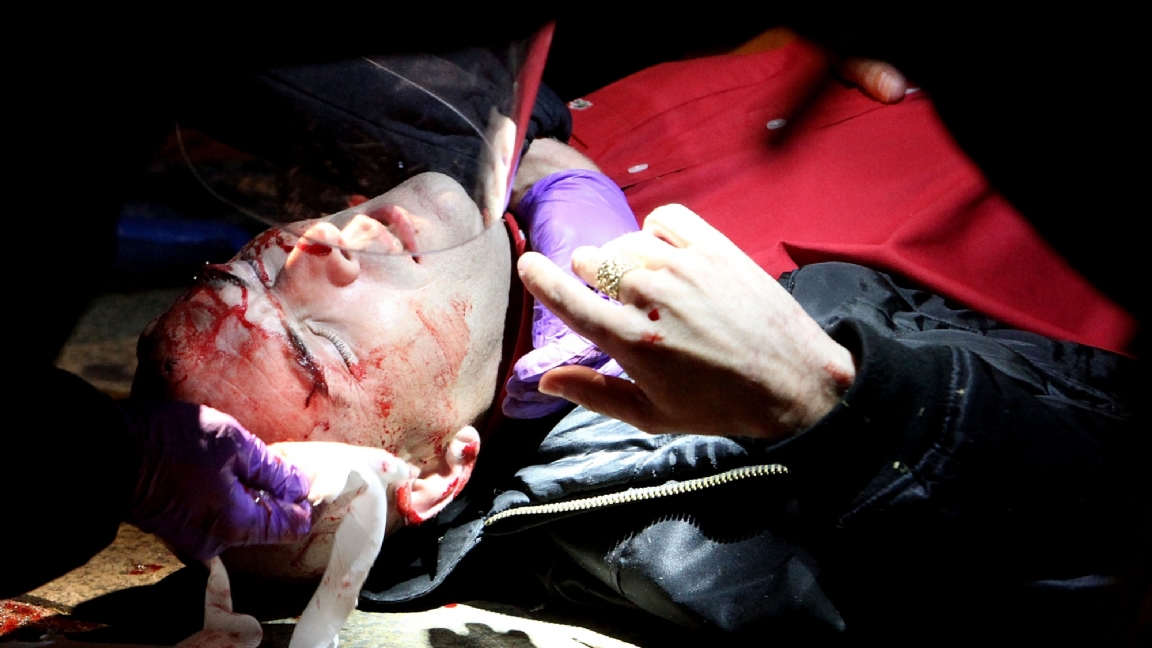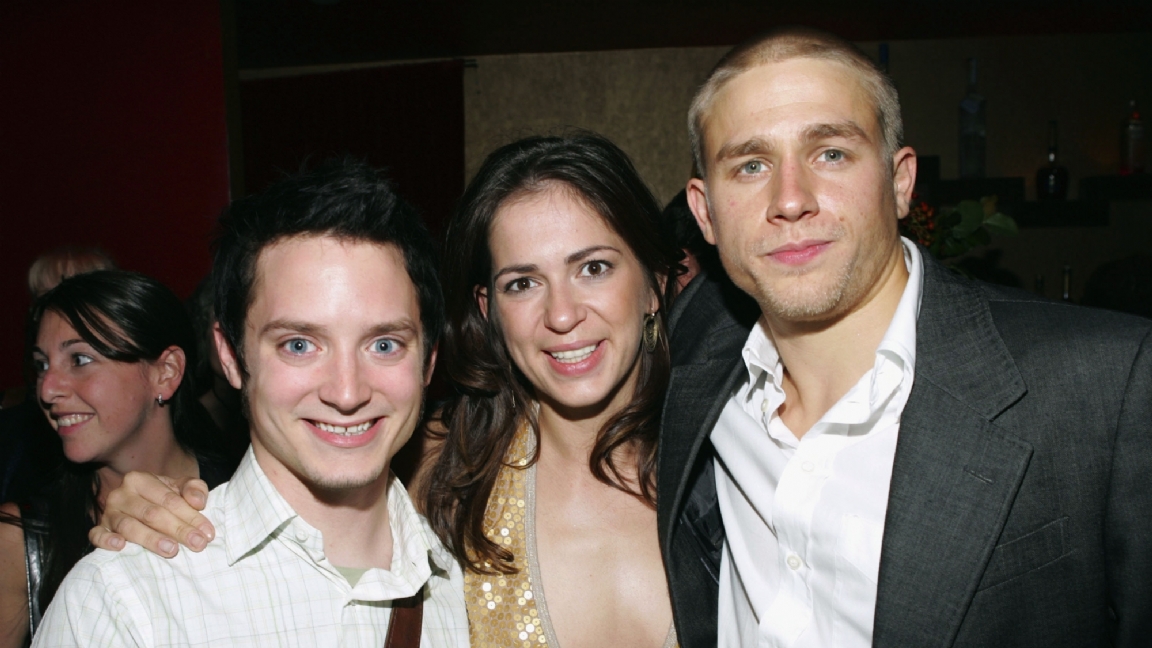![]()

†I’m forever blowing bubbles…roars a group of East Londoners, on their way to Boleyn Ground. It’s the Green Street Elite: a West Ham United hooligan group based on the real life Intercity Firm. The film ‘Green Street’, starring Elijah Wood, describes how the firms in England lose sight of football and endanger many human lives with their hunger for violence. Only… is it really that hard?
This article contains shocking images and minor spoilers from the movie Green Street.
The rivalry between West Ham United and Millwall is older than the Rutte cabinet. At the time of the first head-to-head game of all time, on 8 December 1899 in the FA Cup, supporters and players from both clubs worked on opposite sides of the River Thames. The dockworkers were fighting for the same market with which the enmity was born. A quarter of a century later, things went from bad to worse. The northern ‘West Ham’ side of the Thames was on strike because of low wages and poor working conditions in England. Millwall refused to participate, much to which she was resented by their competitors across the street. It never got better. Since then, the ‘Dockers Derby’ has been known as one of the most infamous matches of football worldwide.
Green Street (also known as ‘Green Street Hooligans’ or ‘Hooligans’ for short) is mainly concerned with the rivalry between West Ham and Millwall. The film follows Matt Buckner (Elijah Wood), an American journalism student who is expelled from Harvard because cocaine is found in his locker. Though framed by his classmate, Matt decides not to resist his exile and leaves for his sister Shannon in London. There he meets Pete, the brother of Shannon’s husband Steve. Pete takes Matt to Birmingham City’s game against West Ham, where he heads the firm: the Green Street Elite (GSE).

Millwall fans during the penultimate meeting between West Ham United and Millwall in the Championship. (September 2011)
A ‘firm’ is called by the Cambridge Dictionary defined as ‘a group of violent supporters of a football team who are out to fight with supporters of other teams’. Football itself disappears completely into the background. This also becomes clear in Green Street, according to a quote from Pete early in the film. “See, West Ham football is mediocre. But our firm is top notch† And everyone knows that.” Pete then ridicules the firms of Arsenal and Tottenham Hotspur before venturing into Millwall.
“We hate each other,” says Pete. Matt, as befits a true American, asks, “Like the (baseball clubs, ed.) Yankees and the Red Sox?” “More like Israel and Palestine,” Pete clarifies. The GSE foreman then tells Matt about Tommy Hatcher, the head of Millwall’s firm, the NGO. Hatcher is said to have gone completely insane since his 12-year-old son was killed in a battle with the GSE. The only appropriate revenge would be the death of the then leader: The Major†

A man hit by a bottle is being treated for his injuries during the riot between West Ham and Millwall supporters. (August 2009)
The GSE and the NGO are based on the Inter City Firm (ICF) and the Millwall Bushwackers respectively. And there, too, extreme violence is no exception. In 2009, the match between West Ham and Millwall for the EFL Cup (3-1) was marred by field storms and disturbances around the stadium. A Millwall supporter was stabbed but survived his injuries. However, Terry Burns couldn’t say that in 1986. The then 19-year-old West Ham fan was surrounded by a group of Bushwackers next to the Embankment tube station and fatally injured with a knife. Burns was the second fatal incident in the rivalry’s history, following the death of Millwall supporter Ian Pratt in 1976.
Green Street is therefore by no means going too far by talking about murder tendencies. That’s how seasoned the hatred between groups can be – director Lexi Alexander should know. At the age of fifteen, the German-Palestinian was hanging around at a firm, which she was initially still impressed with. “I saw something very cool and very nice,” Alexander told in 2005 in The Independent† “I thought it was their way of an extreme sport and they were just adrenaline junkies.” However, when one day as many as forty members of ‘her’ firm dived into just two of the rivals’ men, her illusion was shattered: “It was too violent and too cruel.”

Stars Elijah Wood (l) and Charlie Hunnam (r) with director Lexi Alexander at the Green Street premiere. (September 2005)
Yet Alexander continued to see the humanity of the firm members. In fact, she gained important socio-psychological insights that were fundamental to the creation of Green Street. “I wanted to tell a story about young men and their need for that ‘boys together’ thing, their need to stay together, and what a tribe does to you as a person.” In this way, Green Street goes beyond what can be seen on the surface. It shows how even the most beastly to the naked eye can be rooted in togetherness and close friendships.
Ajax – Feyenoord will never be the same again.
Green Street can be viewed via streaming service Prime Video. When registering via the link, Voetbalzone can receive a commission.
